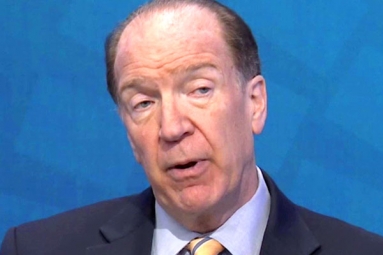
(Image source from: Sakshi.com)
Japan's economy has entered a recession, experiencing an unexpected contraction for the second consecutive quarter due to weak domestic demand. This has raised uncertainty about the central bank's plans to phase out its ultra-easy policy this year. As a result, Japan has lost its position as the world's third-largest economy, being replaced by Germany. Government data revealed that the country's gross domestic product (GDP) fell by 0.4% in the October-December period, following a 3.3% decline in the previous quarter. This performance is significantly below the median market forecast of a 1.4% increase. The consecutive quarters of contraction meet the technical definition of a recession. The weak economic data may challenge the Bank of Japan's prediction that rising wages will drive consumption and justify the reduction of its massive monetary stimulus.
Takuji Aida, chief economist at Credit Agricole, warned that the economy could contract again in the January-March quarter due to factors such as slowing global growth, weak domestic demand, and the impact of the recent earthquake in western Japan. As a consequence, the Bank of Japan may need to significantly revise its optimistic GDP forecasts for 2023 and 2024. Despite this concerning economic situation, the yen remained relatively stable after the release of the data and is currently valued at 150. The Nikkei, which had reached a low point earlier in the week, saw a 1% increase today, partially recovering from its previous losses. This could be due to the belief that the BOJ will extend its easing program for a longer period than initially anticipated. The latest GDP figures revealed a 0.1% decline for the quarter, contrary to economists' expectations of a 0.3% gain. Private consumption, which accounts for over half of economic activity, also fell by 0.2%, while capital expenditure, a significant driver of private-sector growth, dropped by 0.1%.
On a positive note, exports rose by 2.6% from the previous quarter, contributing 0.2 percentage points to GDP. Despite the BOJ's plans to end negative rates by April and make changes to its monetary framework, sources suggest that they will proceed cautiously with any further policy tightening due to ongoing risks. Though BOJ officials have not provided a specific timeline for ending negative rates, many market participants anticipate that it will occur in either March or April. Japan's potential exit from ultra-loose policy remains a possibility due to its strong labour market and thriving corporate spending plans, according to some experts.












